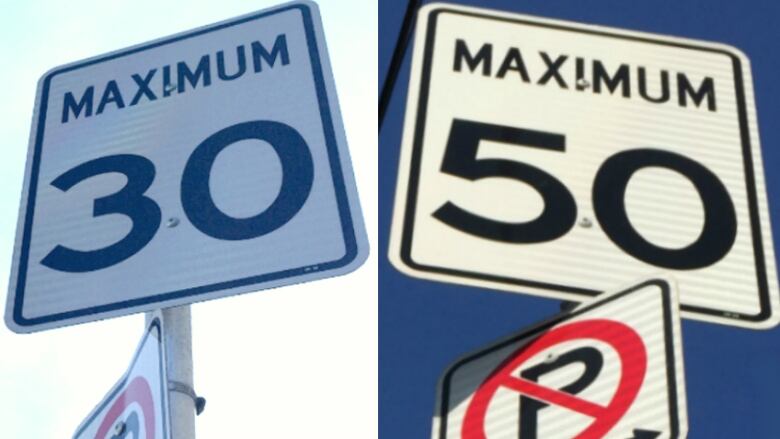City of Saskatoon report recommends dropping residential speed limits to 40 km/h
Issue will be debated at transportation committee in September

A City of Saskatoon report says speed limits in residential neighbourhoods should be lowered in order to reduce severe injuries in car accidents and to limit noise.
On Monday, council's standing committee on transportation was given a final report on the city's residential speed limit review.
Councillors were presented with three options to limit speed zones to 30 km/h, 40 km/h or maintain the status quo at 50 km/h.
The report recommended that speed limits be lowered to 40 km/h on residential streets as a way to minimize fatalities in car accidents, as well as increase the perception of safety in residential neighbourhoods.
Administration also recommended adding collector streets, or roads that connect residential areas to major arteries like Idylwyld Drive, in the proposed speed limit.
The city has been studying residential speed limits since 2018. In March, the City of Saskatoon launched a community engagement process to find out what citizens thought of the idea.
The online survey, which was completed by 14,970 people, showed 65 per cent of people wanted speed limits to stay the same on all streets.
The city also hired a third-party company to run a separate telephone and online survey of 414 people, which found 52 per cent of those surveyed wanted a speed limit lower than 50 km/h on local streets.
The report also compiled statistics on crashes in the city. From 2015 to 2019, there were a total of 38,049 collisions, resulting in 27 deaths and 217 severe injuries on city streets.Thirty-seven per cent of those crashes happened in residential areas.
Councillors will debate the issue at the next transportation committee meeting in September.
With files from The Canadian Press












_(720p).jpg)


 OFFICIAL HD MUSIC VIDEO.jpg)
.jpg)



























































































